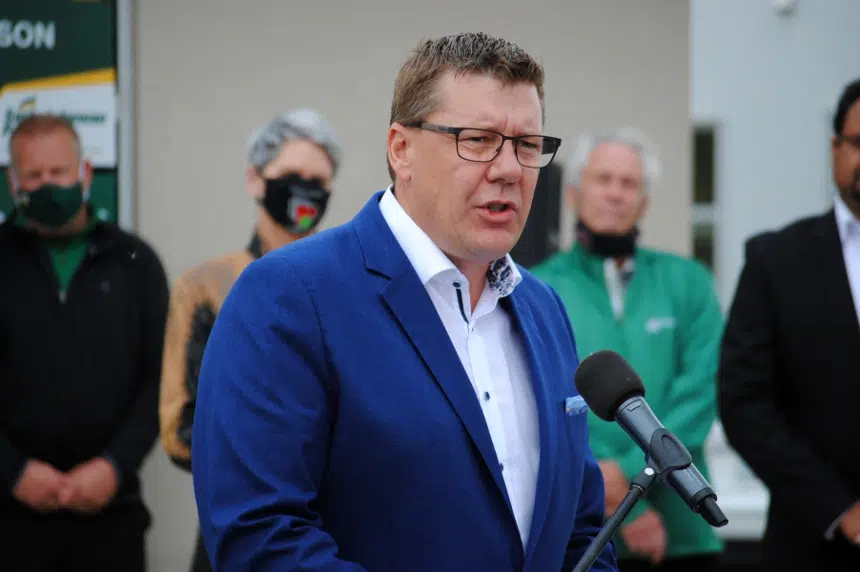Saskatchewan’s premier says he’d like to bring more displaced Ukrainians to the province, but the federal government is dragging its feet and slowing down the process.
Speaking to Gormley on Friday, Premier Scott Moe said he was pleased to see two more flights land in the province this week with 167 displaced Ukrainians on board, but he’d like to do more.
However, the premier said one of the big roadblocks in the process is delays from Ottawa when it comes to approving emergency visas.
“We’ve been asking the federal government (to) speed up the visa process, in particular the CUAET visa process — which is the Canadian-Ukrainian emergency travel — so that we can open up this opportunity for a safer place in the world,” Moe said.
“They’re increasingly slow in providing that, which is really slowing up and maybe even jeopardizing some of the opportunity that we have to provide a safe haven for what essentially are — although not classified by the federal government — essentially refugees.”
On Friday, Moe announced the province had signed a memorandum of understanding with Solidaire and Open Arms — two international humanitarian organizations — to bring a total of five flights of displaced Ukrainian people to Saskatchewan by March 31 of next year.
The five flights include the two that departed Poland for Saskatchewan on July 4 and this past Wednesday.
Since the invasion of Ukraine by Russia in late February, about 1,500 Ukrainians have arrived in Saskatchewan. Moe said the provincial government has ensured the new arrivals have health cards, driver’s licences and access to accommodation and opportunities for employment. The federal government on the other hand, Moe said, isn’t doing much.
“There’s really a lack of support, both operationally in expediting these visas — that are emergency travel visas, so we would hope they would be expedited — and second in not providing any support for these folks when they arrive here,” Moe said.
Moe has called for Saskatchewan to take more autonomy over immigration rules, similar to the autonomy granted to Quebec, and repeated his message that Saskatchewan is going to start acting “like a nation within a nation in Canada.”
The issue of Ukrainian immigration is close to many Saskatchewan people, Moe said, with about 16 per cent of the province tracing their family roots back to the European country.
“This very much is part of the very fabric of Saskatchewan’s culture,” the premier said. “This is one example where we aren’t waiting for the federal government to take the lead.”
Financial relief still under consideration
Moe also addressed the calls by the Saskatchewan NDP to provide relief measures in the face of high inflation and a rising cost of living.
While natural resource prices are high, bringing up provincial revenue, Moe said the government is being careful not to start relying on a price increase that may be temporary.
Moe said balancing the provincial budget and addressing the $460-million deficit is the government’s top priority, but there may be room for relief measures in the budget as well.
“If there is a significant surplus, everyone owns the resource, so everyone should benefit in Saskatchewan when we do have natural resource price increases,” Moe said. “And so we’re looking at how could we return some of these dollars, if possible, to the shareholders, which is everyone across the province of Saskatchewan.”
The premier said he’s not certain what form relief measures could take, but he expected to have a clearer picture of the province’s finances after the first quarter report is tabled at the end of August. Moe said he’s trying to get that report sooner, but stopped short of giving a firm date.











